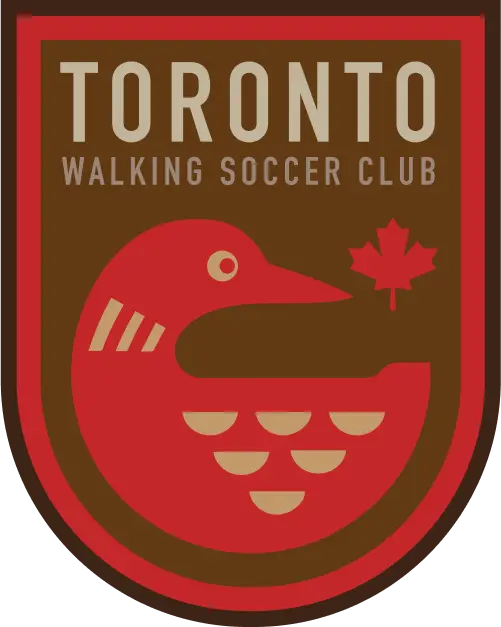What is Walking Soccer?
Walking soccer, also known as walking football, is a modified version of traditional soccer that is played at a slower pace, with a focus on low-impact movement. It is designed to accommodate individuals who may have difficulty playing regular soccer due to age, physical limitations, or injuries. Walking soccer is played extensively in Europe, the home of soccer, and is gaining popularity all over the world.
The main characteristic of walking soccer is that players are required to keep at least one foot on the ground at all times, which means there is no running or jogging involved. The game is played on a smaller field, with up to 7-a-side teams, and the rules are adjusted to suit the capabilities of the players.
Walking soccer encourages physical activity, social interaction, and enjoyment for individuals who may not be able to participate in traditional soccer due to various reasons. It provides an opportunity for older adults, individuals recovering from injuries, or those with limited mobility to engage in a team sport and benefit from the physical and social aspects of the game.

WHY WALKING SOCCER?
-
Physical Fitness
While played at a slower pace, walking soccer still provides a form of exercise that improves cardiovascular health, muscular strength, and endurance. It helps to maintain or improve your balance, coordination, and flexibility. Regular participation in walking soccer can contribute to your overall fitness and well-being.
-
Low-impact Activity
Walking soccer is designed to be gentle on your body, making it suitable for individuals with physical limitations, joint issues, or those recovering from injuries. It reduces the risk of high-impact injuries associated with traditional soccer, making it an accessible and safe option for people of various ages and fitness levels.
-
Social Interaction
Engaging in team sports like walking soccer promotes social interaction and a sense of belonging. It provides an opportunity to meet new people, make friends, and develop a support network. The social aspect of the game enhances mental well-being and helps combat social isolation.
-
Mental Well-being
Participating in walking soccer can have positive effects on mental health. Exercise releases endorphins, which improve mood and reduce stress. Being part of a team, setting goals, and engaging in friendly competition can boost self-esteem, confidence, and cognitive skills.
-
Enjoyment and Recreation
Walking soccer allows individuals who may have been unable to play traditional soccer to continue enjoying the game. It provides a recreational activity that is fun and enjoyable, offering a sense of achievement and satisfaction.
-
Lifelong Participation
Walking soccer promotes lifelong physical activity. It enables individuals, particularly older adults, to stay active and engaged in a sport they may have enjoyed throughout their lives. The modified rules and lower intensity make it possible for individuals to continue playing soccer as they age.


HEALTH BENEFITS
Walking soccer is played at a slower pace, allowing individuals of all ages and fitness levels to participate. While it may not involve intense running or physical exertion, walking soccer still offers several health benefits. Below are some of the potential advantages:
-
Cardiovascular Health
Walking soccer provides a moderate cardiovascular workout, improving heart and lung function. Engaging in regular cardiovascular exercise helps lower the risk of heart disease, stroke, and other cardiovascular conditions.
-
Low-Impact Exercise
Walking soccer is a low-impact activity that puts minimal stress on joints, making it suitable for individuals with joint problems, arthritis, or other conditions that limit high-impact activities. It can improve joint mobility, flexibility, and overall joint health.
-
Muscular Strength and Endurance
Although the pace is slower, walking soccer still involves movements that engage the leg muscles, including the quadriceps, hamstrings, and calves. Regular participation can help strengthen and tone these muscles, enhancing overall lower-body strength and endurance.
-
Balance and Coordination
Playing walking soccer requires balance, agility, and coordination. The sport involves precise footwork, passing, and maneuvering around opponents, which can improve motor skills and coordination. This can be particularly beneficial for older adults who want to maintain or improve their balance and reduce the risk of falls.
-
Mental Well-being
Participating in any form of physical activity can have positive effects on mental health. Walking soccer offers an opportunity for social interaction, camaraderie, and a sense of belonging. It can help reduce stress, improve mood, boost self-esteem, and enhance overall mental well-being.
-
Weight Management
Regular participation in walking soccer can contribute to weight management and help prevent obesity. It increases energy expenditure and calorie burn, which can assist in maintaining a healthy body weight or achieving weight loss goals when combined with a balanced diet.
-
Social Engagement
Walking soccer is often played in a team setting, fostering social interaction, building friendships, and creating a sense of community. Social engagement has been linked to improved mental health, cognitive function, and overall quality of life.
Subscribe to 'We Are The Loons' Newsletter
Be the first to know about the latest events, leagues and all goings on around walking soccer
